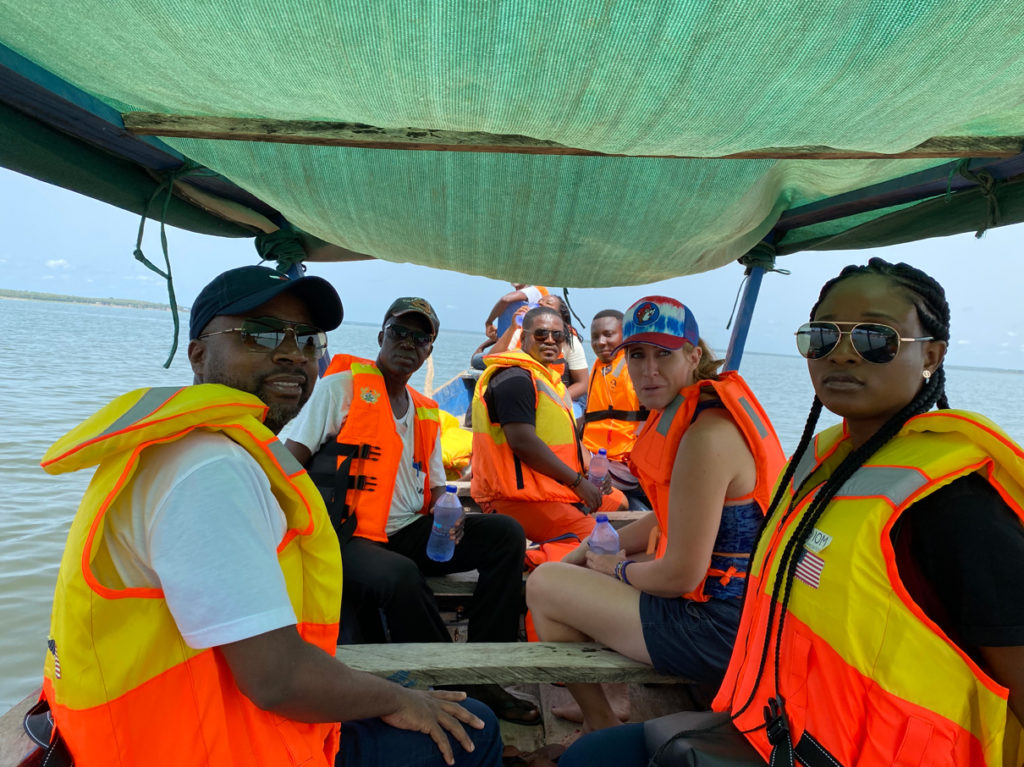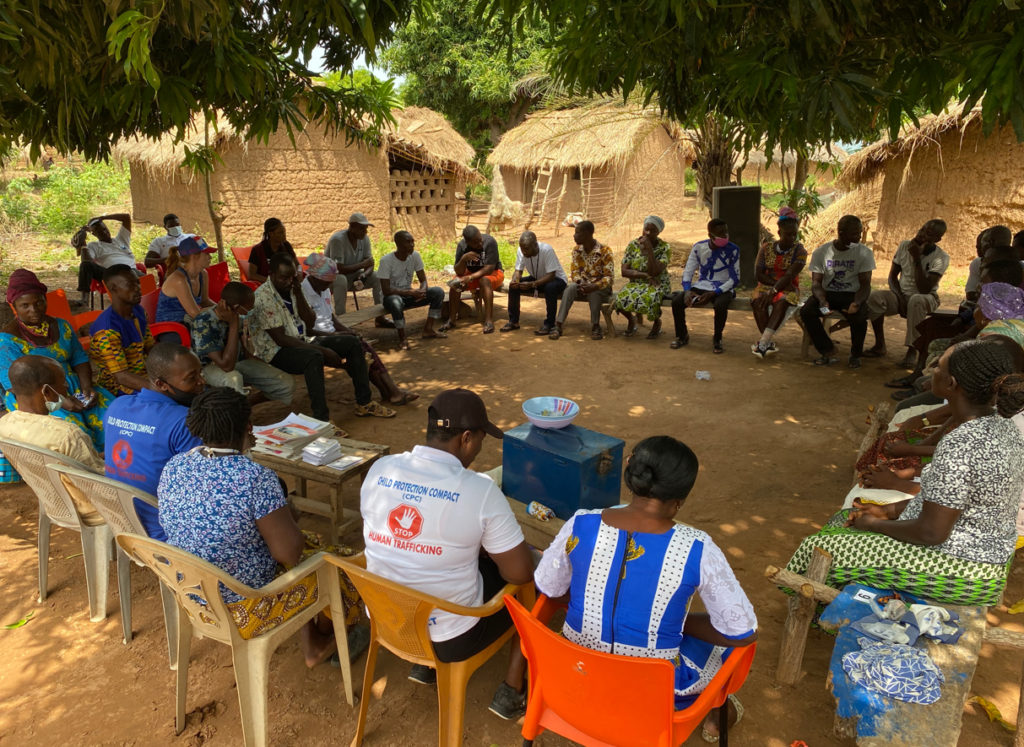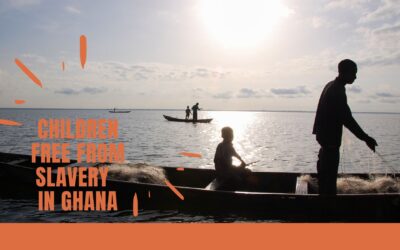Poverty and the absence of legitimate sources of credit are two of the key conditions that allow modern slavery to exist. People without resources are vulnerable to offers of cash, food or livestock if they send a child away with a trafficker. People without credit must borrow informally during emergencies, working off the debt in conditions of slavery.
This is why I was keen to visit an island community called Chenekope in the Krachi West District of Ghana’s Oti Region this summer. There is no official bank in this village. So, with the help of FTS, people started their own savings and loan program.
The boat ride to Chenekope took me through the fishing waters of Lake Volta, where thousands of children are enslaved on unsafe boats and canoes. The lake looked peaceful during my visit, though in harsh weather boats often capsize and enslaved children are never seen again.

Chenekope residents have formed a Village Savings and Loan Association (VSLA). It allows villagers to establish savings, and provides loans to families and microenterprises in need. FTS has helped establish VSLAs throughout the communities in which we work. This association has 25 members, mostly women who are fishers and petty traders in the market.
The group looked well organized – and committed to the fight against human trafficking. They began the day’s meeting with a 30-min discussion about protecting children from modern slavery in fishing. VSLA members told me the savings club helps keep children off the boats.
“I am able to hire adults to help me in my fishing activities instead of using children,” one man explained.
Several women detailed how the VSLA has helped them set up new businesses and expand existing ones. This has helped them send their children to school instead of to work, and to meet basic family needs.
Other members talked about how they have used VSLA funds to improve the variety of seeds they plant and purchase new equipment to expand their farms, establish economic resilience.

I was impressed about what I saw and heard about the use of grassroots collective power to address some of the economic root causes of modern slavery. My biggest question to them was how they intend to sustain this initiative. They seem to have a well-reasoned plan: expansion. They discussed using some of the profit from loans to start new savings groups in the village, even buying more chairs for group meetings so more people are encouraged to attend and participate.
Human trafficking is an economic crime as well as a violation of fundamental human rights. Through their Village Savings and Loan Association, the people of Chenekope are working to bring both economic justice and freedom from slavery to their isolated island.
Editor’s note: This is the third of four posts this month from FTS Executive Director Bukeni Waruzi about his visit this summer to the front lines of modern slavery in Ghana. See all his Ghana posts and learn more about our Growing up Free program on our Ghana webpage.


